The Significance of ‘Swarm’ (or God) Giving Dre a Happy Ending
"I wanted to share Ni'Jah with you!" - Dre (a.k.a. Tony)
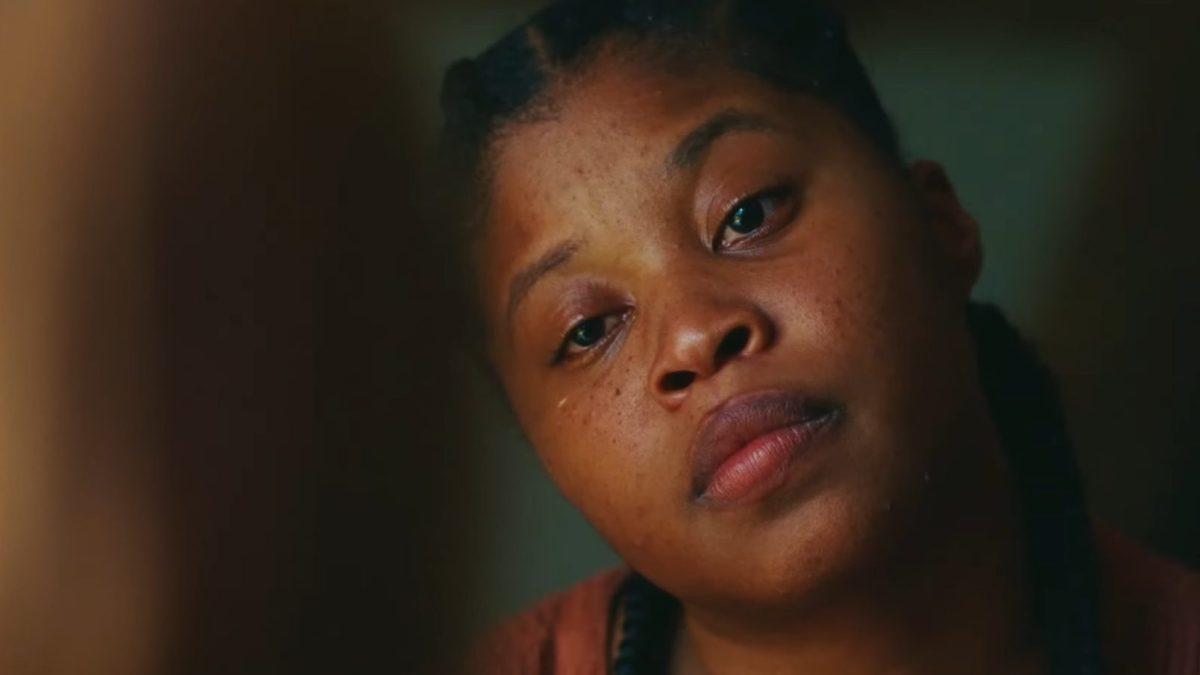
I’ll admit it. I’ve never felt more sympathy for a fictional serial killer in my life. So, I was glad when Dre (a brilliant, fierce, and vulnerable Dominique Fishback), the protagonist of Amazon’s Swarm, received a bit of comfort and closure in the final episode, “Only God Makes Happy Endings.”
Don’t get me wrong, I could never be a serial killer’s “fan,” but I am fascinated by Dre and I sympathize with her. But before we get into all of that, let’s get clear on the basic events of Swarm.
Obligatory spoiler warning for Swarm. But tbh, even if I tell you every single thing that happens in this series, you still might not know what happened. Also, I mention the ending of Breaking Bad.
The inciting incident (for this story)
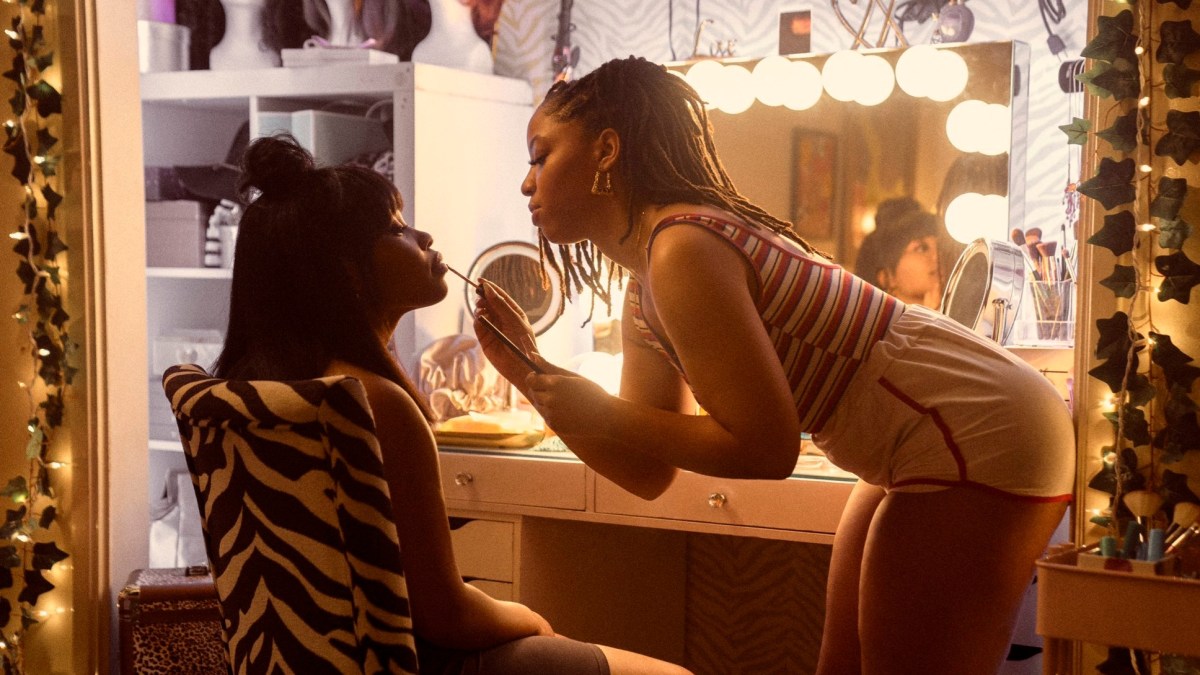
Swarm chronicles the life of Andrea “Dre” Greene between 2016 and 2018. Dre and her roommate/foster sister, Marissa Jackson (Chloe Bailey), are huge fans of a Beyoncé-like pop superstar named Ni’Jah. Okay, Marissa is a huge fan; Dre is obsessed.
Dre’s other obsession is Marissa. If not obsession, then she is clearly overly dependent on Marissa. When Marissa realizes she needs some space from Dre and decides to move in with her boyfriend, Khalid (Damson Idris), Dre can’t handle it. She panics and heads to a club to hook up with a rando, ignoring Marissa’s repeated texts.
As it turns out, Marissa was texting Dre after a fight with Khalid, and continued texting as she listened to Ni’Jah’s newly released surprise album. When Dre gets home, she finds Marissa in bed, having died from an apparent suicide. This is when Dre really begins to spiral, and when the murder spree that we experience with her begins.
However, if you give Swarm your full attention for all seven episodes, you learn that the first murder the viewer sees Dre commit is not her first act of violence.
Dre’s violence timeline
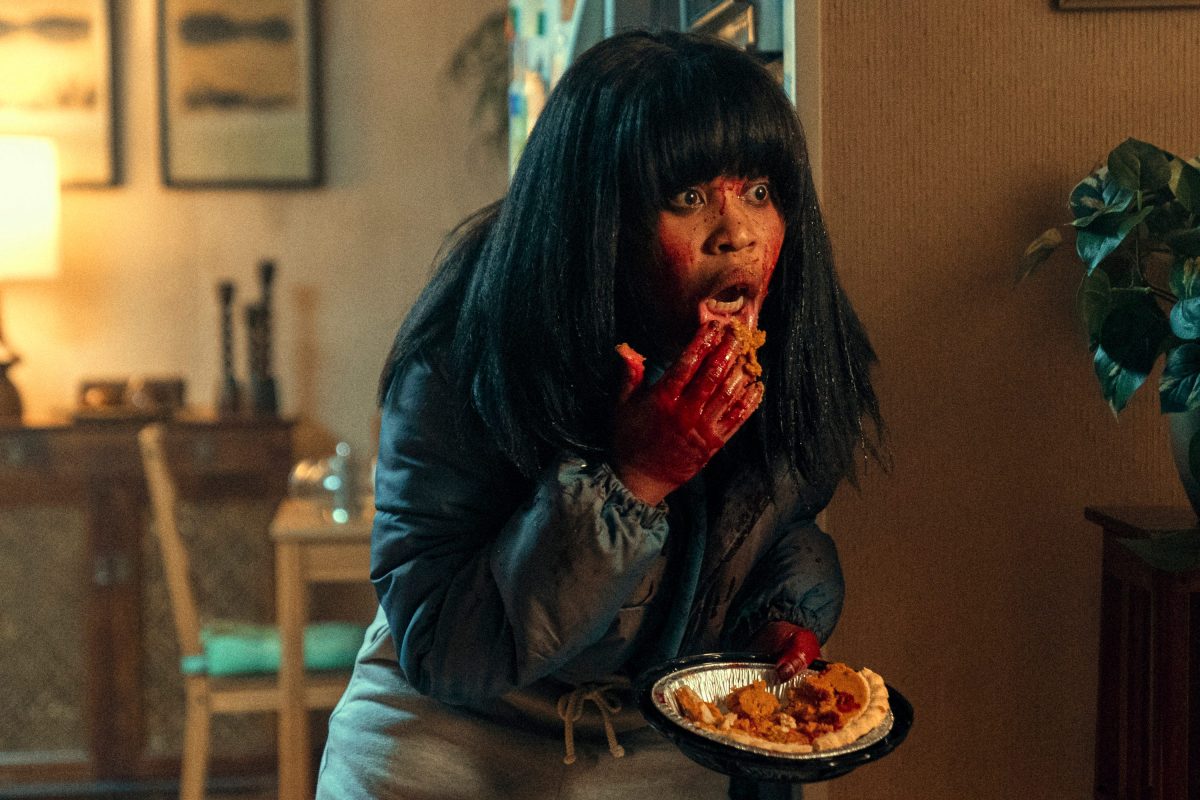
This is my best attempt to create a timeline of Dre’s history of violence in chronological order:
- ELEMENTARY SCHOOL—Dre first hears Ni’Jah at her grandmother’s house on the same day she “hurts someone.” Her grandmother walks in on her and asks, “Dre, what did you do?” Dre apologizes for “spilling the milk.” Her brain made it “spilled milk” in her memory, but when asked about it years later, she confesses that the “milk” was red. It was spilled blood, not milk. So, while Ni’Jah and violence are inextricably linked in her head, her violence didn’t start because of Ni’Jah. It was already there (episode 4, “Running Scared”).
- FIFTH GRADE—Dre was taken in by a foster family, the Jacksons. She and the Jacksons’ only daughter, Marissa, became inseparable. Mrs. Jackson talks about their closeness and insinuates that her husband thought it meant that they were “funny” (i.e., queer). While it’s unclear whether Dre and Marissa ever acted on a romantic/sexual connection in their youth, this doesn’t stop Mr. Jackson from banning Dre from a birthday slumber party and forcing her to stay in her attic bedroom while Marissa is downstairs with her friends. During the slumber party, Marissa’s friends “slumbered” her “for fun” because she was the first to fall asleep—meaning they ganged up and prank-attacked her in some way. Dre came down, saw this, and stabbed one of the girls for hurting Marissa. Mrs. Jackson recalls that Dre “apologized for spilling the milk.” A reference to the “milk” she spilled when she committed violence when she was younger (episode 6, “Fallin’ Through the Cracks”).
- Dre describes a history of people calling her “dyke,” “liar,” “stupid,” and “pig.” For much of her life, people have assumed queerness in her (which we learn is true), have accused her of lying, have not believed her to be smart, and have made fun of her for eating a lot. Dre also describes a long-held opinion of death being beautiful because “it’s equal.” It’s something that happens to everybody. She doesn’t necessarily see death as “bad,” and she expresses pleasure in inflicting blunt force trauma (episode 4, “Running Scared”).
- ADULT DRE—Dre kills Khalid, both for insulting Ni’Jah and for taking Marissa away from her (episode 1, “Stung”). As she continues to kill, we see a kind of “code” emerge. Dre kills someone when 1) they insult Ni’Jah, 2) when they hurt a woman she’s close to (Marissa in episode 1, “Stung”; Hailey in episode 2, “Honey”), or 3) when someone holds her back and keeps her from getting to Ni’Jah (Hailey in episode 2; the NXIVM-esque women’s cult members in episode 4, “Running Scared”; Rashida and the scalper in episode 7, “Only God Makes Happy Endings”).
Dre’s violence existed before Ni’Jah
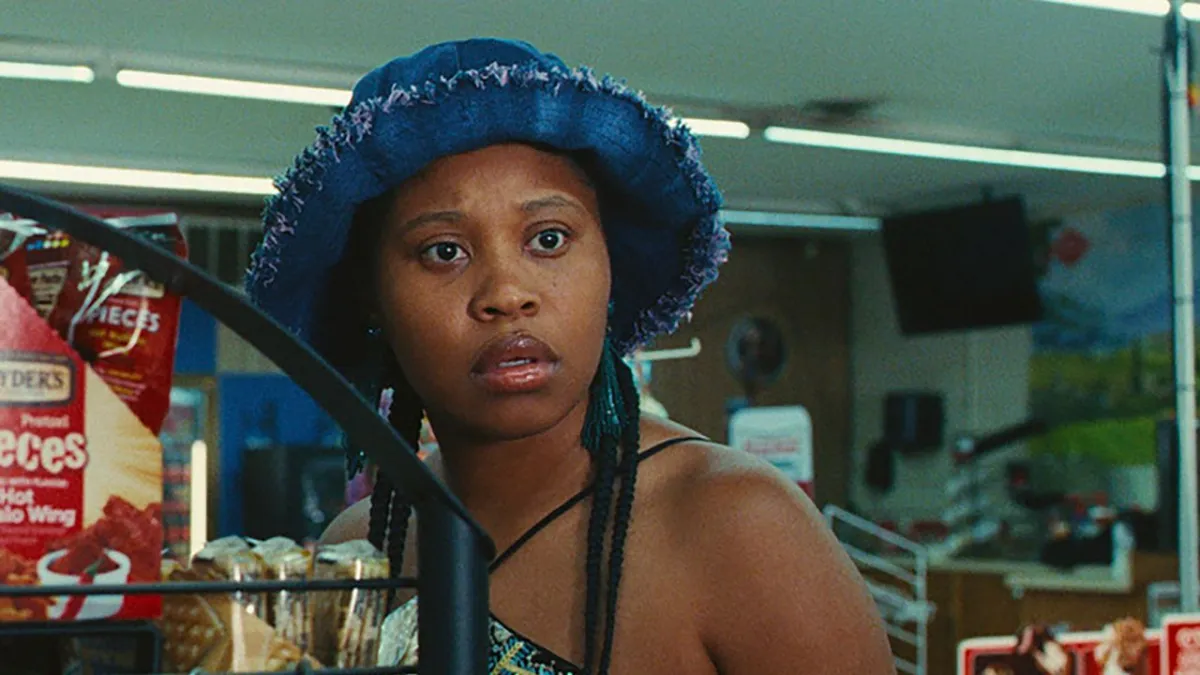
Ni’Jah’s music was something beautiful that this “weird” girl latched onto the same day she committed her first act of bloody violence. Her violence didn’t come from her obsession with the singer or her interactions with the fandom. Dre used Ni’Jah’s music to process her violence, and perhaps to connect with humanity in a way she couldn’t otherwise.
We never learn why Dre was in foster care, because her case worker refuses to tell Det. Loretta Greene (Heather Simms) anything about Dre’s history prior to the Jacksons in episode 6. We can assume, however, that it has something to do with her violent act as a child.
Was she living with her grandmother, or merely visiting? If she was living with her grandmother, what happened to her parents? Who did she hurt and why? Was she defending herself, or did she always find pleasure in inflicting pain?
The case worker calls out Det. Greene for wanting to know Dre’s “sob story,” saying that it would help them make Dre out to be a “monster.” She asks something to the effect of, “Do you want to know if she was touched? Or abused?” It’s interesting that people want an easily understandable explanation, but the truth is that some people are just wired this way.
This is why I find outlets like The Verge calling Swarm a “send-up of stan culture” too surface-level a read. Dre’s obsession with Ni’Jah could’ve been anything. While the connection to Beyoncé and real-life acts of violence make this story relatable to viewers steeped in pop culture, Swarm isn’t just a commentary on the dangers of fandom.
It’s a reminder of the importance of actively choosing to connect with other human beings, even—and maybe especially—if they seem a little strange.
The story of a woman desperate for human connection
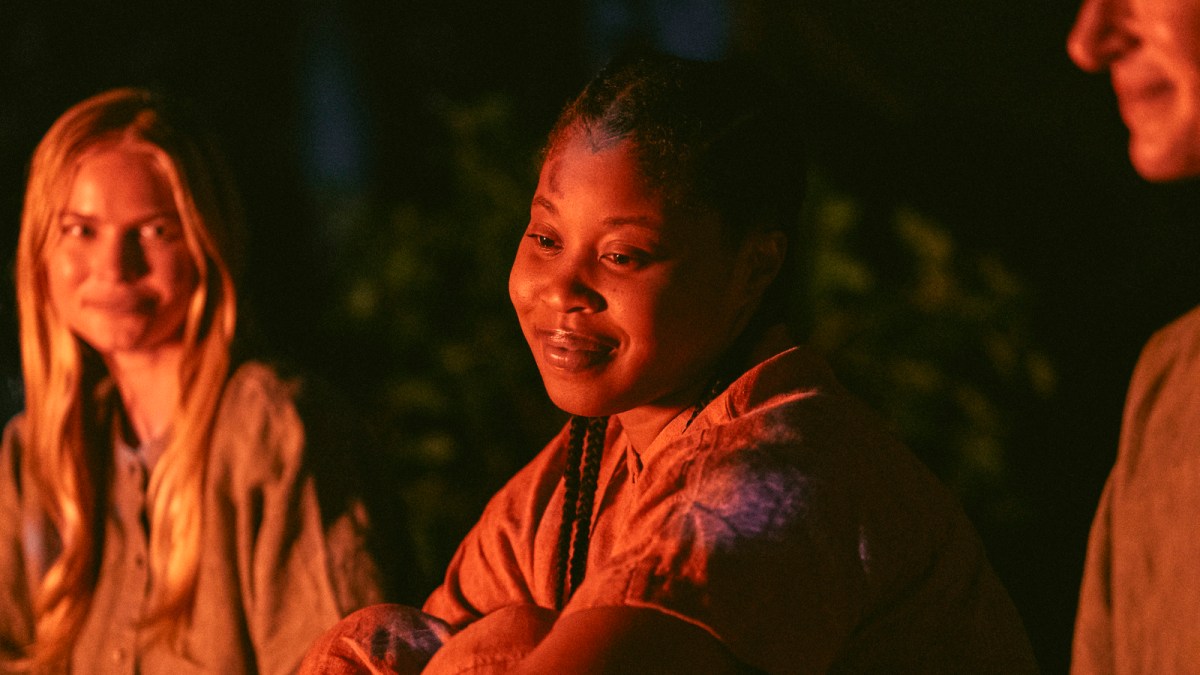
Although I’m fascinated by and can feel sympathy for serial killers, I’m not particularly fascinated by the whys and hows of their crimes. I’m fascinated by the role of community in their development. I’m fascinated by how little society prioritizes mental health, yet still manages to be surprised by how much violence there is.
Dre has a long history of being ostracized, abandoned, and not cared for properly—because she’s never been “easy to care for.” People respond to Dre’s “weirdness” by either pulling away from or deriding her. Adults repeatedly responded to her violence as a child by sending her away rather than getting her help, or combating the violence by trying even harder to connect with her.
This makes Dre more susceptible to people who seem to see her. Her love of Ni’Jah is a big part of that.
- When Marissa came along, Dre clung to her as if she were a lifeboat. We hear about Dre’s violence at the slumber party, but for the most part it’s Marissa who is standing up for and defending Dre in their time together. They share a deep love of Ni’Jah. They are both sensitive. Marissa keeps Dre level for the most part, even as the rest of their peers shun or look down on her.
- Dre’s first “friend” after Marissa’s death is a fellow stripper named Hailey (Paris Jackson) who also enjoys Ni’Jah. When Hailey pushes her way into Dre’s hotel room, Dre doesn’t kick her out or tell her off; she’s desperate for closeness. She even commits a murder to protect Hailey from an abusive boyfriend. It’s only when Hailey threatens to come between Dre and Ni’Jah that Dre kills her, too.
- Dre basically joins a cult on the way to Bonnaroo because the leader, Eva (Billie Eilish), makes her feel seen. Eva competently uses Ni’Jah as a way to ground Dre and manipulate her into being more vulnerable with the group. Again, it’s only when the group threatens Dre’s ability to get to Ni’Jah—and Dre figures out that they were lying about getting her to the show—that she mows Eva down with her car.
- The saddest and most profound connection comes in the final episode, when Dre is going by the name Tony and has adopted a masculine gender expression.* Dre meets a woman named Rashida (Kiersey Clemons) and they date for a year, despite the fact that Rashida is crystal clear about hating Ni’Jah’s music when they first meet. Dre wants to connect with Rashida and her family so desperately that she tunes out every time Rashida complains about Ni’Jah. It’s only when Rashida makes her hatred of the pop star inescapable—dismissing the Ni’Jah tickets Dre got her as an anniversary gift—that Dre has “no choice” but to kill her. Rather than laugh the way she often does when killing others, Dre cries.
Dre doesn’t know how to deal with anger or maintain relationships largely because there was never anyone there to show her how—except for Marissa. When her deepest human connection was taken away, it pulled the keystone from the arch and the whole thing collapsed.
Dre’s happy ending
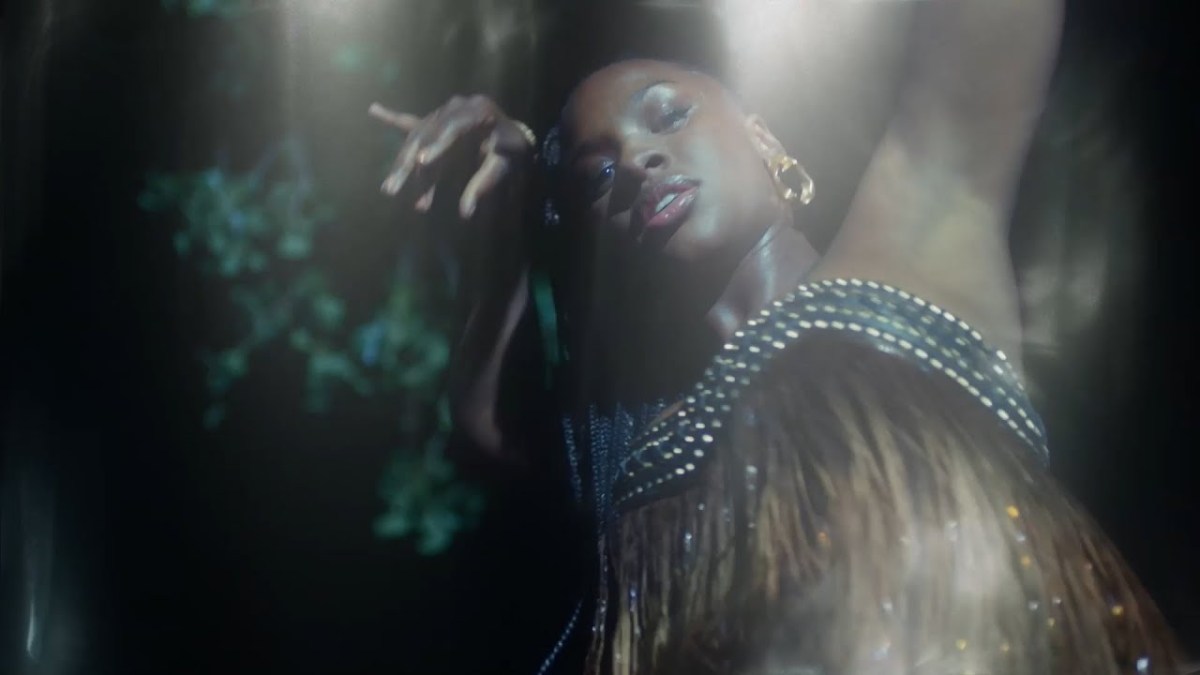
In episode 6, “Fallin’ Through the Cracks,” Det. Greene mentions that Dre has been found, is now going by Tony, and is “being held” after jumping onstage during a Ni’Jah concert. However, when we see the incident in the following episode, Dre doesn’t get pulled off stage. Instead, as she’s being pulled off, Ni’Jah stops the security guards and tells them to let Dre go. When Dre looks at her, Ni’Jah has Marissa’s face. Ni’Jah/Marissa welcomes Dre and invites her to sing.
She then rushes Dre out to her car, protecting her from the glare of the paparazzi. Once they’re in the car, Ni’Jah/Marissa holds Dre close and lets her cry. In this moment, Dre gets to be in the arms of the two people she values most.
We know that Dre was actually arrested for jumping on stage at Ni’Jah’s show, but I’m happy that Swarm gives her a little peace through magical realism.
In “Running Scared,” Eva asks Dre if she prays, and Dre says she hasn’t prayed ever since she realized that God is just an “echo of us.” It’s interesting, then, that the final episode is called “Only God Can Make Happy Endings.” If Dre is right, then she is giving herself this “happy ending.” In fact, she’s the only one who can. This is both empowering and sad; her mind is capable of protecting her from her trauma—because it has to. Because no one (except Marissa) ever knew how to take care of her properly and fully.
When I took a pilot-writing class years ago, the teacher said that she didn’t like the phrase “happy ending.” Instead, she preferred a just ending. The ending might not be happy, but it should be just in relation to what the protagonist has experienced.
For example, Breaking Bad ends with Walter White’s death. Although he did many heinous things and probably “deserved” to die, he still managed to provide for his family, which is all he wanted to do in the first place. The audience rooted for that. It was a just ending.
I think that Swarm gives Dre a just ending, too. She is punished for her actions at the concert (and likely will be punished for everything else if Det. Greene gets to her), but the show also acknowledges that Dre has been done a disservice by society as a whole and deserves a bit of peace before we send her off.
*It’s unclear whether Tony is a trans man, non-binary, or whether this is just a persona Dre has adopted in hiding, so I’ll continue referring to the character as Dre and using “she” pronouns.
(featured image: Prime Video)
Have a tip we should know? [email protected]